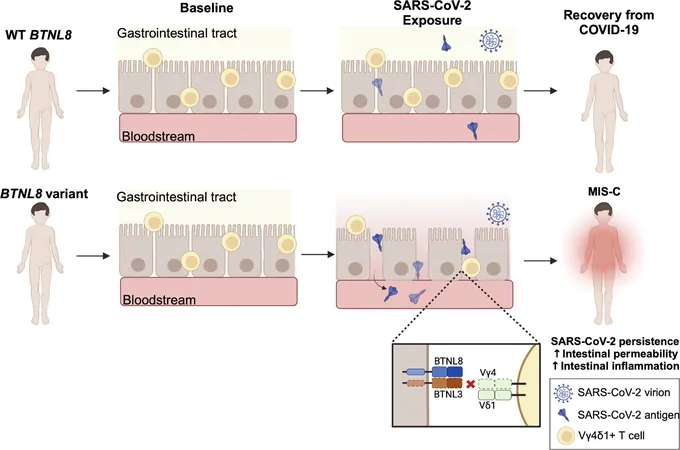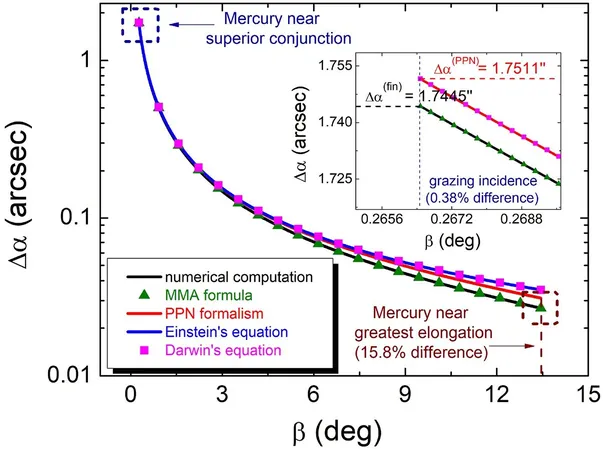
Unraveling the Mysteries of MIS-C: Genetic Factors Behind Post-COVID Syndrome in Children Revealed!
2024-11-25
Author: Wei
Introduction
In a groundbreaking study, scientists have delved into the genetic factors that may explain why some children develop a severe inflammatory condition known as multisystem inflammatory syndrome in children (MIS-C) after experiencing mild COVID-19. Although severe COVID-19 cases in children were uncommon, around 1 in 10,000 children developed MIS-C, exhibiting troubling symptoms such as rash, swollen lymph nodes, abdominal pain, fever, and gastrointestinal distress.
Study Overview
An international team of researchers, led by experts from Imperial College London, has pinpointed rare genetic variations that increase the likelihood of developing MIS-C fourfold in affected children. Their findings, published in the Journal of Experimental Medicine, provide critical insights into the mechanisms behind this mysterious condition.
Research Methodology
The research analyzed over 150 cases of MIS-C from Europe and the United States, revealing that variations in a gene responsible for regulating the gut lining were common in affected children. This discovery raises important questions about how these genetic factors can influence the risk of severe inflammatory responses post-infection.
Key Findings
Dr. Vanessa Sancho-Shimizu, a senior author and noted expert in infectious diseases, emphasized the urgent need to understand the driving mechanisms of MIS-C, stating that while most patients recover, the underlying factors making children susceptible have remained elusive until now. “We are hopeful that our findings will enrich our understanding of the condition, enhancing treatment for affected children,” she noted.
Emerging Concerns
During the pandemic, it became evident that children were generally resilient to severe SARS-CoV-2 infections; however, the emergence of MIS-C highlighted a need for further examination. The symptoms, which unfolded weeks after the initial infection, were initially likened to Kawasaki disease, leading health professionals to characterize this new response to the virus.
Genetic Insights
To uncover genetic insights, the team conducted comprehensive genome sequencing on blood samples from 154 patients aged 0-19 with MIS-C. Their innovative computational technique called burdenMC allowed researchers to identify the genetic variants associated with the syndrome, shedding light on the connections between genes and this rare condition.
The Role of BTNL8
Among their startling findings, the gene BTNL8 emerged as a significant player. While this gene typically helps regulate immune response in the gut, specific rare variants found in children with MIS-C appeared to increase susceptibility to systemic inflammation. Consequently, this could explain the widespread symptoms exhibited by these children.
Ethnic Disparities
Professor Adrian Hayday, a prominent immunobiologist at King's College London, highlighted the unexpected role of BTNL8 in this context, suggesting it could redirect our understanding of how infections escalate into severe disease. The study also uncovered that children of European and Hispanic descent had a higher occurrence of these specific gene variants, indicating racial and ethnic factors in MIS-C susceptibility.
Future Directions
As researchers continue to investigate the precise biological mechanisms that lead to MIS-C due to these genetic variations, they are also considering the gut's role in other childhood inflammatory illnesses, such as Kawasaki disease. This study signifies a critical step towards unraveling complex pediatric health issues in the wake of the pandemic and opens the doors for future treatments and preventive strategies.
Conclusion
Stay tuned as researchers aim to decode more about these genetic markers and their implications, potentially providing relief for families grappling with the long-term effects of COVID-19 in children!



 Brasil (PT)
Brasil (PT)
 Canada (EN)
Canada (EN)
 Chile (ES)
Chile (ES)
 España (ES)
España (ES)
 France (FR)
France (FR)
 Hong Kong (EN)
Hong Kong (EN)
 Italia (IT)
Italia (IT)
 日本 (JA)
日本 (JA)
 Magyarország (HU)
Magyarország (HU)
 Norge (NO)
Norge (NO)
 Polska (PL)
Polska (PL)
 Schweiz (DE)
Schweiz (DE)
 Singapore (EN)
Singapore (EN)
 Sverige (SV)
Sverige (SV)
 Suomi (FI)
Suomi (FI)
 Türkiye (TR)
Türkiye (TR)